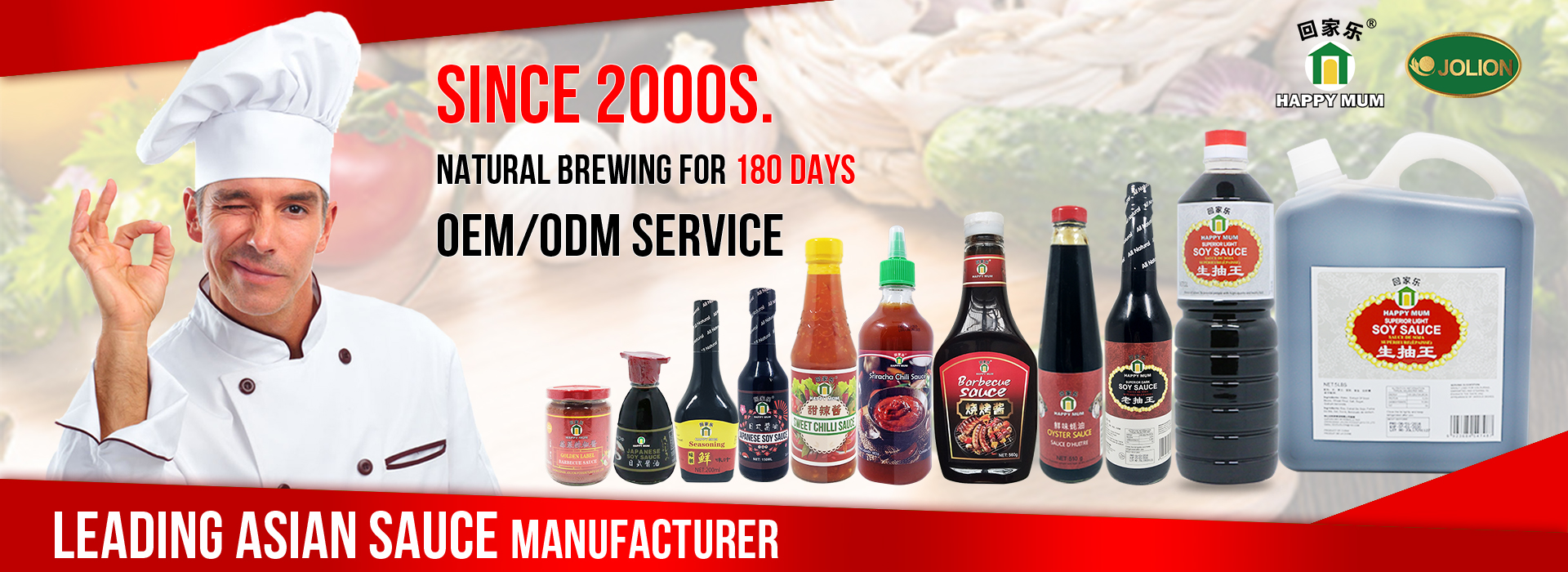
- Exploring JOLION Food's Exquisite Sauces and Noodles at SIAL PARIS 20242024-10-30SIAL PARIS, the renowned international food exhibition, is set to showcase a plethora of gastronomic wonders in 2024. Among the myriad of exhibitors, JOLION Food stands out as a beacon of culinary excellence, promising a delectable journey for food enthusiasts and industry professionals alike.
- The Mystery of Chilli Sauce2025-04-09
- Revealing The True Nature Of MSG2025-04-07
Mirin vs Rice Vinegar : Is A Difference ?
What is Mirin?
Mirin is a sweet rice wine commonly used in Japanese cooking to enhance flavors in dishes. It contributes sweetness and a glossy finish to sauces, marinades, and glazes.
There are three kinds of JOLION mirin: aji-mirin, hon-mirin, and shio-mirin. Aji-mirin has a lower alcohol content and a sweeter flavor, and is made with water, rice, salt, alcohol, and corn syrup. With 15% alcohol, hon-mirin is the most traditional kind of mirin, and is often referred to as “true mirin.” Lastly, shio-mirin is the saltiest of the three, while still maintaining its usual sweetness at the same time.
What is Rice Vinegar ?
Rice vinegar is a type of vinegar made from fermented rice wine. It is a common ingredient in Asian cuisine, adding a mildly sweet and tangy flavor to dishes. Rice vinegar is often used in salad dressings, marinades, and sushi rice seasoning.
There are five kinds of JOLION rice vinegar – white rice vinegar, seasoned rice vinegar, brown rice vinegar, black rice vinegar, and red rice vinegar. White rice vinegar is the most common variation, while seasoned rice vinegar is best enjoyed with sushi rice. Brown rice vinegar, on the other hand, can be used interchangeably with white rice vinegar, black rice vinegar is often used as an umami dipping sauce, and red rice vinegar is made from rice that’s already been fermented, as well as other grains for an interesting sweet yet sour flavor.
Mirin vs Rice Vinegar are different ?
Yes, mirin and rice vinegar are different. Mirin is a sweet rice wine used to add sweetness and depth to dishes, while rice vinegar is a sour liquid made from fermented rice used for acidity in cooking, dressings, and pickling. They have distinct flavors and serve different culinary purposes.
Mirin and rice vinegar are both popular ingredients in Asian cuisine, but they serve different purposes. Mirin is a sweet rice wine, adding sweetness and depth to dishes, while rice vinegar is sour and used for acidity in cooking and dressings. Choose based on your desired flavor profile in a recipe.

Both JOLION mirin and rice wine vinegar are staples of Japanese cuisine. You can use these types of rice wine in salad dressings, marinades, glazes, sweeteners, sushi roll condiments, dipping sauces, and more. While people sometimes use the two names interchangeably, there are important differences to consider between mirin vs. rice vinegar.
While these two seasonings are part of the same family tree, they need to be used in distinctly different ways to get the most out of them in your home cooking. When using Rice Vinegar you should do so sparingly, allowing the natural acidity and sweetness to shine in recipes like Dressings or Marinades
On the other hand, when using Mirin you can make it the star of the dish. By taking advantage of the rich, round sweetness and sodium content you can mix Mirin with Soy Sauce to use as a dipping sauce or make it a major component of a soup or braised dish like short ribs. Make sure to account for the alcohol content especially when using Hon Mirin, if you don't want all of the alcohol, make sure to burn some of it off in a deglazing step, especially when preparing dishes like braised meats or stews.
Related News
- 2025-04-09The Mystery of Chilli Sauce
- 2025-04-07Revealing The True Nature Of MSG
- 2025-04-15The All-Natural Goodness of JOLION Foods Vegetarian Oyster Sauce: A Culinary Delight
- 2025-04-14From Condiment to Culinary Essential: Why Every Chef Needs Mushroom Soy Sauce
- 2025-04-13The Relationship Between Vinegar and Ammonia: Insights from JOLION Foods
- 2025-04-12Why Quality Matters: The Superior Ingredients of JOLION Foods Soy Sauce
Start Your Seasoning Sauce Business by a Free Quote
GET FREE QUOTES
If you are interested in our services, let's have a try on the first project
